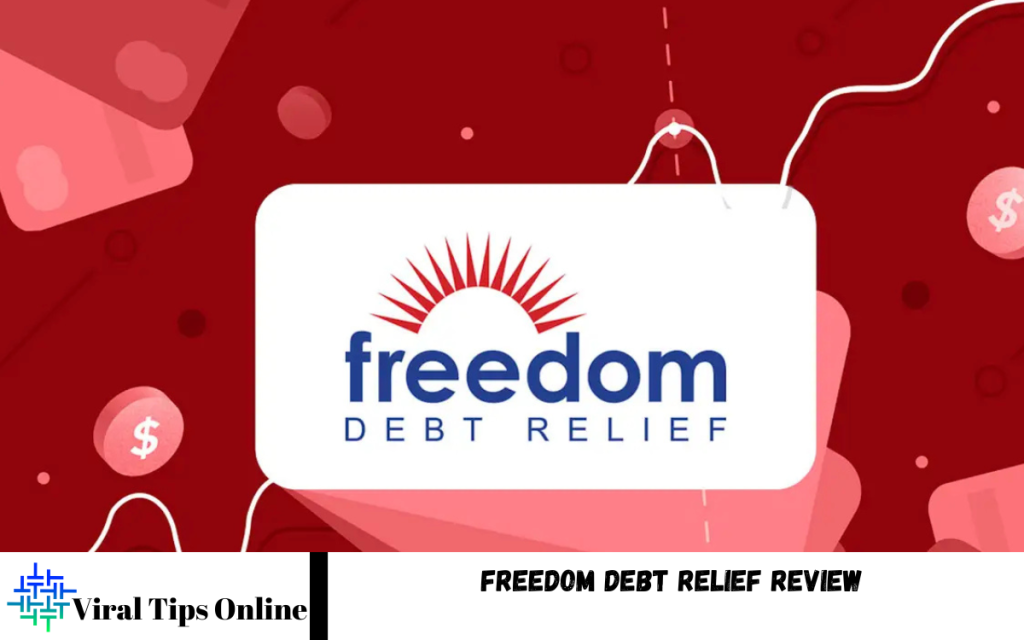Freedom Debt Relief (FDR) is one of the largest and most well-known debt settlement companies in the United States, helping individuals struggling with unsecured debts like credit cards, medical bills, and personal loans. Established in 2002, the company has assisted over 850,000 clients in resolving billions of dollars in debt, making it a trusted name in the debt relief industry.
We take a closer look at Freedom Debt Relief’s services, process, and overall reputation to help you decide if it’s the right solution for your financial situation. We’ll explore how the program works, typical savings, fees, and potential drawbacks to consider before enrolling. Since debt settlement can impact your credit and comes with certain risks, understanding these factors is crucial.
What Is Freedom Debt Relief?
Freedom Debt Relief is a debt settlement company founded in 2002. Its mission is to help people who are overwhelmed by unsecured debt such as credit cards, medical bills, and some personal loans by negotiating with creditors to settle for less than what is owed.
Unlike a loan or a traditional debt consolidation program, FDR does not lend you money. Instead, it provides a structured process where you save funds in a dedicated account, while the company works to negotiate settlements on your behalf. This can help reduce the total amount you have to pay, often providing significant financial relief.
How Freedom Debt Relief Works
Here’s a simplified breakdown of the process:
- Free Debt Consultation
The journey begins with a free consultation where a debt specialist reviews your total debt, income, and expenses. They determine whether you qualify for the program and recommend a plan tailored to your financial situation. - Enrollment
Once you agree, you choose which unsecured debts to enroll. These can include credit card balances, medical bills, and collection accounts. - Dedicated Account Setup
You open a separate FDIC-insured account and make monthly deposits into it instead of paying your creditors directly. This account will be used to accumulate the funds needed for settlement offers. - Negotiation With Creditors
When enough money builds up, Freedom Debt Relief negotiates with your creditors to settle for less than the full amount you owe. You have the opportunity to review and approve each settlement. - Debt Resolution
Once a creditor agrees to the settlement terms and you make the payment, the debt is considered resolved. This process continues until all enrolled debts are settled.
The entire process typically takes between 24 and 48 months, though some clients may see results within the first few months for individual debts.
Costs and Fees
Freedom Debt Relief charges a performance-based fee that typically ranges between 15% and 25% of your enrolled debt. This fee is only collected after a settlement has been successfully negotiated, you approve it, and you make a payment toward it.
There may also be a small monthly fee to maintain your dedicated account, but there are no upfront fees to join the program. The minimum debt requirement is usually around $7,500, so the program is best suited for people with significant unsecured debt.
Pros of Freedom Debt Relief
- Significant Potential Savings
Many clients see their enrolled debts reduced by 30–50% before fees. This can make repayment much more manageable compared to paying the full amount. - No Upfront Costs
You only pay fees after a successful settlement, which aligns the company’s incentive with your success. - Professional Negotiators
Freedom Debt Relief has experienced negotiators who deal with creditors on your behalf, saving you the stress and effort. - Structured Plan
The program gives you a clear timeline and a plan for how to tackle your debt, which can provide peace of mind. - Alternative to Bankruptcy
Debt settlement can be a less drastic option compared to filing for bankruptcy, which can have more severe long-term consequences on your credit.
Read Also: 10+ Proven Habits That Keep Your Spending Under Control
Cons of Freedom Debt Relief
- Impact on Credit Score
Because you stop paying creditors directly while saving money in your account, your accounts will become delinquent, which can significantly lower your credit score. - No Guarantee of Settlement
Not every creditor will agree to settle. Some may continue collection efforts or even file lawsuits. - Program Length
The process can take two to four years to complete, requiring discipline and consistency with monthly deposits. - Fees Reduce Savings
While you may save money overall, the fees can be substantial, so it’s important to weigh whether the net savings are worth it. - Tax Consequences
The IRS may consider forgiven debt as taxable income, so you could owe taxes on the amount that is settled.
Who Should Consider Freedom Debt Relief?
Freedom Debt Relief is best for people who:
- Have at least $7,500 in unsecured debt
- Are struggling to make minimum payments
- Are willing to accept an impact on their credit score in exchange for reducing their debt
- Can commit to saving money in a dedicated account each month
- Want to avoid bankruptcy but need a structured solution
If you have secured debt (like a mortgage or car loan), mostly student loans, or if you can comfortably pay off your balances with a debt management plan or consolidation loan, FDR may not be the right choice for you.
Customer Reviews and Reputation
Freedom Debt Relief has helped hundreds of thousands of clients over two decades and has resolved billions of dollars in debt. Many customers praise the company for its professionalism, support, and ability to negotiate substantial reductions.
That said, some clients report frustration with the time required to settle debts, ongoing collection calls, or the impact on credit. Like any debt settlement company, results vary based on your unique financial situation and creditor cooperation.
Frequently Asked Questions
Will Freedom Debt Relief hurt my credit score?
Yes. Because you stop paying creditors directly during the program, your accounts will become delinquent, which can lower your credit score. However, once debts are settled, your credit can gradually recover over time.
What types of debt can Freedom Debt Relief help with?
They can help with unsecured debts such as credit card balances, medical bills, collection accounts, and some personal loans. Secured debts (like mortgages or auto loans) and most federal student loans are not eligible.
Is Freedom Debt Relief legitimate?
Yes. Freedom Debt Relief is one of the largest and most established debt settlement companies in the U.S., with a strong industry reputation and a track record of successfully settling billions in debt.
What is the minimum debt required to qualify?
Typically, you need at least $7,500 in unsecured debt to qualify for the program, though this may vary by state.
Can creditors still contact me during the program?
Yes. Creditors may still call or send collection letters until a settlement is reached. However, Freedom Debt Relief can guide you on how to handle these communications.
Are there tax implications for settled debt?
Yes. Any forgiven debt over $600 may be reported as taxable income. It’s recommended to speak with a tax professional to understand potential tax liabilities.
Conclusion
Freedom Debt Relief can be a powerful tool for those drowning in unsecured debt and unable to see a way out. Its structured program, experienced negotiators, and pay-for-performance model make it a legitimate option for debt relief. It’s not for everyone. The credit score impact, program length, and potential legal or tax consequences mean you should carefully consider your options before enrolling.






